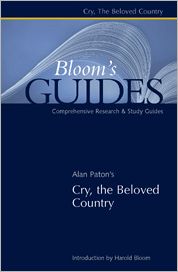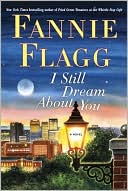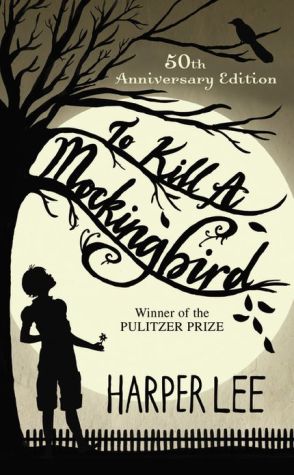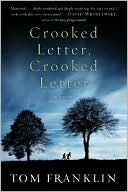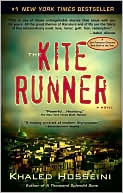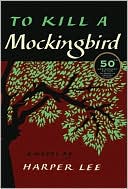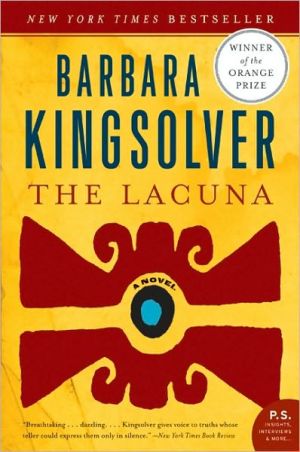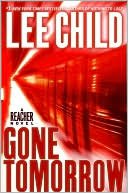Cry, the Beloved Country
Cry, the beloved country, for the unborn child that is the inheritor of our fear. Let him not love the earth too deeply. Let him not laugh too gladly when the water runs through his fingers, nor stand too silent when the setting sun makes red the veld with fire. Let him not be too moved when the birds of his land are singing, nor give too much of his heart to a mountain or valley. For fear will rob him of all if he gives too much."\ The most famous and important novel in South Africa's...
Search in google:
Cry, the beloved country, for the unborn child that is the inheritor of our fear. Let him not love the earth too deeply. Let him not laugh too gladly when the water runs through his fingers, nor stand too silent when the setting sun makes red the veld with fire. Let him not be too moved when the birds of his land are singing, nor give too much of his heart to a mountain or valley. For fear will rob him of all if he gives too much."The most famous and important novel in South Africa's history, and an immediate worldwide bestseller when it was published in 1948, Alan Paton's impassioned novel about a black man's country under white man's law is a work of searing beauty. The eminent literary critic Lewis Gannett wrote, "We have had many novels from statesmen and reformers, almost all bad; many novels from poets, almost all thin. In Alan Paton's Cry, the Beloved Country the statesman, the poet and the novelist meet in a unique harmony."Cry, the Beloved Country is the deeply moving story of the Zulu pastor Stephen Kumalo and his son, Absalom, set against the background of a land and a people riven by racial injustice. Remarkable for its lyricism, unforgettable for character and incident, Cry, the Beloved Country is a classic work of love and hope, courage and endurance, born of the dignity of man.Publishers WeeklyIn search of missing family members, Zulu priest Stephen Kumalo leaves his South African village to traverse the deep and perplexing city of Johannesburg in the 1940s. With his sister turned prostitute, his brother turned labor protestor and his son, Absalom, arrested for the murder of a white man, Kumalo must grapple with how to bring his family back from the brink of destruction as the racial tension throughout Johannesburg hampers his attempts to protect his family. With a deep yet gentle voice rounded out by his English accent, Michael York captures the tone and energy of this novel. His rhythmic narration proves hypnotizing. From the fierce love of Kumalo to the persuasive rhetoric of Kumalo's brother and the solemn regret of Absalom, York injects soul into characters tempered by their socioeconomic status as black South Africans. (May)Copyright © Reed Business Information, a division of Reed Elsevier Inc. All rights reserved.
Cry, the Beloved Country\ \ By Alan Paton \ Amereon Limited\ Copyright © 1920 Alan Paton\ All right reserved.\ ISBN: 0891903798 \ \ \ \ Chapter One\ There is a lovely road that runs from Ixopo into the hills. These hills are grass-covered and rolling, and they are lovely beyond any singing of it. The road climbs seven miles into them, to Carisbrooke; and from there, if there is no mist, you look down on one of the fairest valleys of Africa. About you there is grass and bracken and you may hear the forlorn crying of the titihoya, one of the birds of the veld. Below you is the valley of the Umzimkulu, on its journey from the Drakensberg to the sea; and beyond and behind the river, great hill after great hill; and beyond and behind them, the mountains of Ingeli and East Griqualand. \ The grass is rich and matted, you cannot see the soil. It holds the rain and the mist, and they seep into the ground, feeding the streams in every kloof. It is well-tended, and not too many cattle feed upon it; not too many fires burn it, laying bare the soil. Stand unshod upon it, for the ground is holy, being even as it came from the Creator. Keep it, guard it, care for it, for it keeps men, guards men, cares for men. Destroy it and man is destroyed.\ Where you stand the grass is rich and matted, you cannot see the soil. But the rich green hills break down. They fall to the valley below, and falling, change their nature. For they grow red and bare; they cannot hold the rain and mist, and the streams are dry in the kloofs. Too many cattle feed upon the grass, and too many fires have burned it. Stand shod upon it, for it is coarse and sharp, and the stones cut under the feet. It is not kept, or guarded, or cared for, it no longer keeps men, guards men, cares for men. The titihoya does not cry here any more.\ The great red hills stand desolate, and the earth has torn away like flesh. The lightning flashes over them, the clouds pour down upon them, the dead streams come to life, full of the red blood of the earth. Down in the valleys women scratch the soil that is left, and the maize hardly reaches the height of a man. They are valleys of old men and old women, of mothers and children. The men are away, the young men and the girls are away. The soil cannot keep them any more.\ \ \ Continues...\ \ \ \ Excerpted from Cry, the Beloved Country by Alan Paton Copyright © 1920 by Alan Paton.\ Excerpted by permission.\ All rights reserved. No part of this excerpt may be reproduced or reprinted without permission in writing from the publisher.\ Excerpts are provided by Dial-A-Book Inc. solely for the personal use of visitors to this web site. \ \
\ Publishers WeeklyIn search of missing family members, Zulu priest Stephen Kumalo leaves his South African village to traverse the deep and perplexing city of Johannesburg in the 1940s. With his sister turned prostitute, his brother turned labor protestor and his son, Absalom, arrested for the murder of a white man, Kumalo must grapple with how to bring his family back from the brink of destruction as the racial tension throughout Johannesburg hampers his attempts to protect his family. With a deep yet gentle voice rounded out by his English accent, Michael York captures the tone and energy of this novel. His rhythmic narration proves hypnotizing. From the fierce love of Kumalo to the persuasive rhetoric of Kumalo's brother and the solemn regret of Absalom, York injects soul into characters tempered by their socioeconomic status as black South Africans. (May)\ Copyright © Reed Business Information, a division of Reed Elsevier Inc. All rights reserved.\ \
